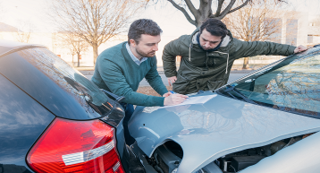Ian Evans, Corclaim partner
While inflation is beginning to ease, the pressure on fleet operators is not.
Energy, fuel and vehicle prices are continuing to rise, albeit less quickly than in previous months.
These price increases – alongside a shortage of parts – are placing a major strain on the motor repairs sector, making it more expensive and time-consuming to get vehicles back on the road after accidents, and leaving operators without the use of their fleets for extended periods.
In fact, towards the end of last year, 63% of independent garages and dealership workshops said they would be looking to increase their repair and servicing prices in the New Year in order to stay afloat amid higher overheads.
The momentum and demand for used vehicles that was seen in 2022 has carried into 2023, leading to longer wait times.
As current vehicles are expected to be on the road for at least another 12 months before they are replaced, it is imperative that current fleets are kept in good condition regardless of higher servicing fees.
And to top it all off, it is widely stated that claims inflation is around 10% for both third party and own damage losses, so it is expected that cost pressures will feed through into insurance pricing as well.
There is no quick fix to these challenges, making margins more important than ever before and meaning it is becoming increasingly necessary to maximise recoveries through an uninsured loss recovery (ULR) provision when a fleet vehicle has been involved in an accident.
All too often, ULR is overlooked by many in the industry – resulting in thousands of pounds’ worth of unclaimed losses. However, in a time when cash is key, this under-utilised solution can help in combatting uncontrollable escalating costs.
For those who are not aware, ULR is the process of recapturing costs and expenses that may have incurred if a vehicle has been involved in an incident that is not the fault of an employee.
Depending on the insurance policy, these losses may be ‘uninsured’ if not covered and can include repairs, loss of use or revenue, policy excess and replacement vehicle charges.
The priority for fleet managers after an incident will, of course, be getting vehicles back on the road as quickly as possible.
However, due to time-consuming repairs, this is not always possible at present, and they may find loss of use, revenue or hire costs escalating.
These losses incurred as a result of non-fault accidents represents a commercial opportunity, which can be taken advantage of with the appropriate ULR provisions in place, some of which operate on a no-win, no-fee basis.
To begin with, fleet operators should reflect on their internal procedures and policies to ensure they know what to do if one of their vehicles is involved in an accident that was not their fault.
They should also ensure all their drivers understand the importance of getting full details including photographs of their vehicle (especially if is it a company vehicle with a livery on it), areas of damage and if possible, the other driver.
The impact of failing to do these basics can cost businesses significant sums of money.
Furthermore, while it is not usually relevant to the recovery of losses, discreet photographs of the inside of the other vehicle to show whether there were any passengers and how many is always a good idea.
It is also important to remain diligent and keep on top of paperwork and communications with insurers – this can sometimes feel like a full-time job, but it is vital to recovering owed money.
Businesses can put forward whatever claims they like.
However, they will, of course, be subject to scrutiny and insurers will ask for documentation.
The lack of documentation does not mean recovery is impossible, but it does lower the prospects.
For example, if there is a claim for loss of profit, workings out need to be shown; just providing simple details from a spreadsheet is not usually sufficient.
For those with a ULR process already in place – it is worth reviewing the ULR damages that are being recovered.
Is your present supplier maximising returns on repairs that haven’t yet commenced or been handled through your recommended network?
Is loss of use or loss of revenue subject to the requisite focus and is your present supplier fighting your corner on these more challenging heads of loss?
While some incidents will be fault claims, it is important to have a proper ULR solution in place to minimise claims spend on non- or partial-fault incidents.
Many fleet operators will, rightly, concentrate on the cost against the business in fault incidents, but it is not an either or – having a proper ULR solution in place, which is best procured on a commission basis so only payable at the conclusion of a successful recovery, is imperative to maximising loss recovery with no upfront fees and helping to reduce overall spend in times of economic uncertainty.






















Login to comment
Comments
No comments have been made yet.